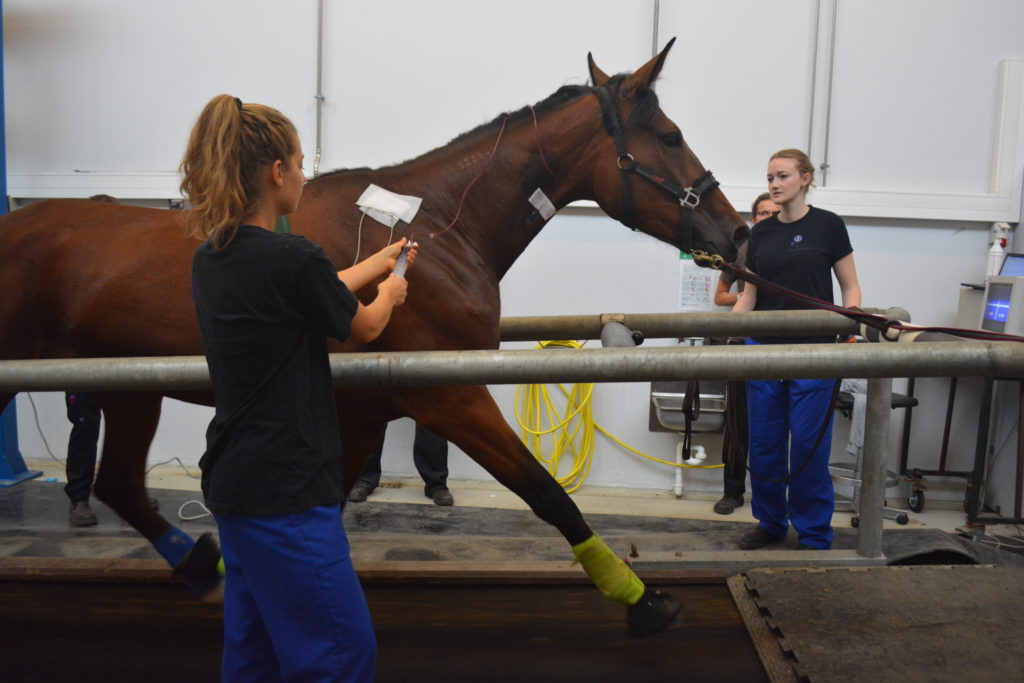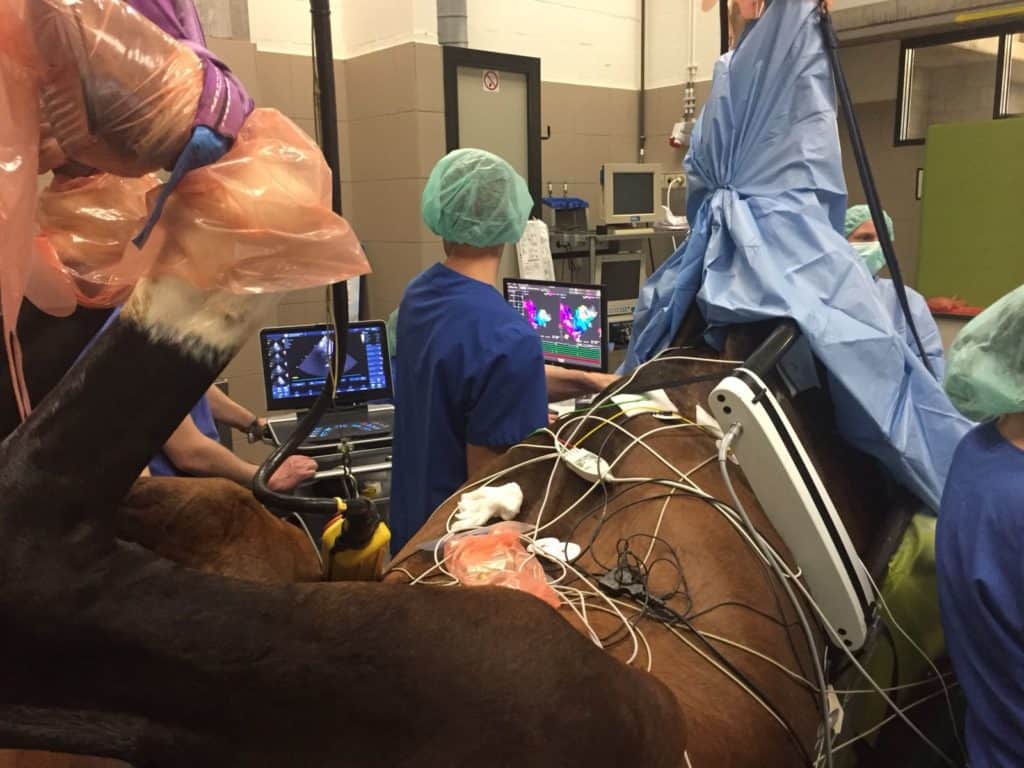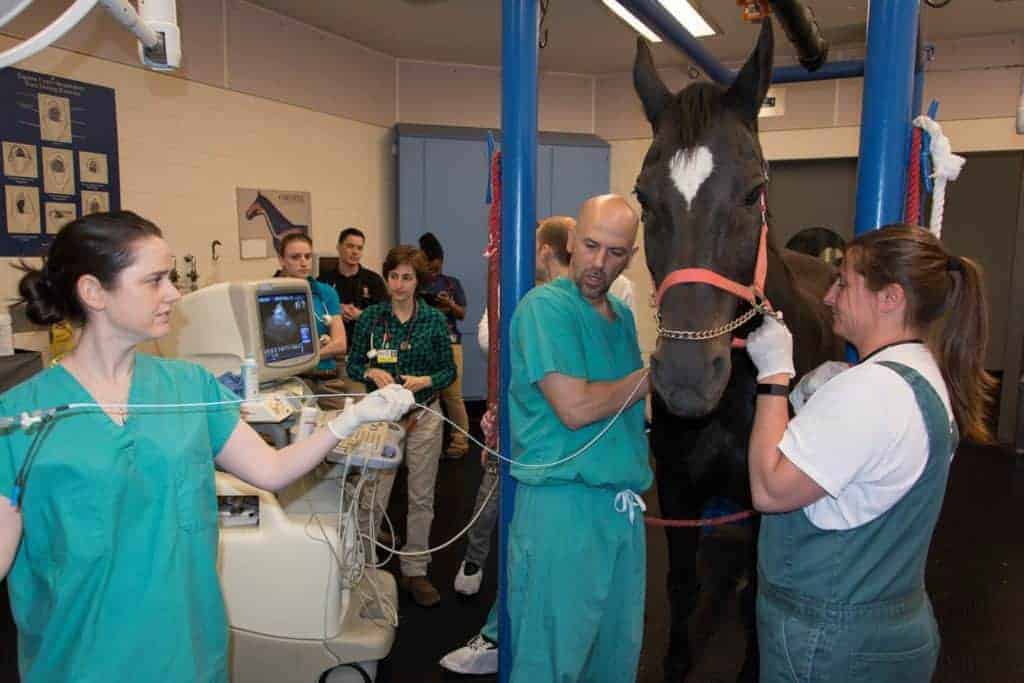
The Horse, KindredBio Bring You Cardiac Health Awareness Week
We’re taking a closer look at horse heart health Feb. 23-29, 2020.

We’re taking a closer look at horse heart health Feb. 23-29, 2020.

Scientists recently tested a noninvasive, wireless, wearable device that allows veterinarians to monitor heart function, sounds and murmurs, and more while the horse remains free to move around his normal surroundings.

As much credit as we give horses for their metaphorical hearts, the actual blood-pumping organs generally get far less attention than other bodily systems. Take an in-depth look at the cardiovascular exam, common cardiac abnormalities, and treatment options.

Researchers observed abnormally high heart rates and atypical heart beats in horses with atrial fibrillation, findings they said were surprising and scary.

Some horses that consume monensin eventually recover—a few even return to work—but it hasn’t been clear how toxicity impacted their hearts and subsequent athletic performance. Here’s what researchers learned.

Belgian veterinarians have successfully completed the first cardiac ablation—a procedure used to correct irregular heartbeats—performed in a horse. Diamant, a 5-year-old Norwegian show jumper, came through the four-hour operation with no difficulties.

Describing age-related structural changes in senior horse hearts is a critical first step in recognizing pathologies. However, researchers say it’s too soon to know how those age-related changes affect horse health.

Acclaimed equine cardiologist and ultrasonography pioneer Dr. Virginia B. Reef will help practitioners determine the significance of murmurs and arrhythmias and the resulting ramifications for their treatment and management.

Researchers tested a technique to log heart rate and speed data from each horse in an attempt to monitor, step-by-step, the horse’s physical response to jumping during training, competition, and recovery.

There’s been very little scientific study into sudden death in sport horses, but researchers recently reviewed a number of incidents with the ultimate goal of reducing the number of fatalities that occur.

A recent study has revealed that aspirin’s effects on horses seem less pronounced than in humans. In fact, some horses might be resistant to it.

Vets can use a smartphone-based heart monitor to identify arrhythmias that are difficult to diagnose in the field.

Researchers found high degrees of heritability (up to 0.17), especially in male horses and in pacers.

An “athletic” heart is a heritable characteristic linked to good endurance performance, researchers confirmed.

This is good news, researchers say, since oxytocin infusion is the best treatment for retained placenta in mares.

When other atrial fibrillation treatments fail transvenous electrical cardioversion could restore a normal heartbeat.
Stay on top of the most recent Horse Health news with
"*" indicates required fields